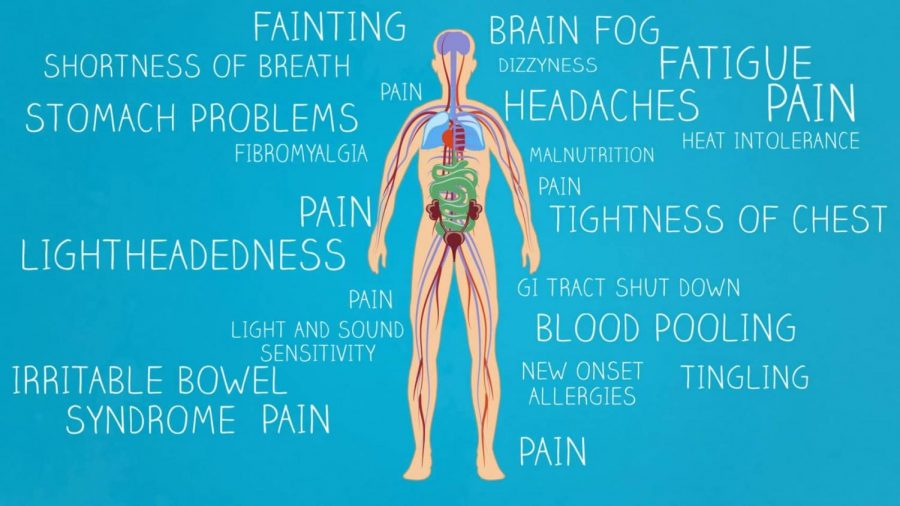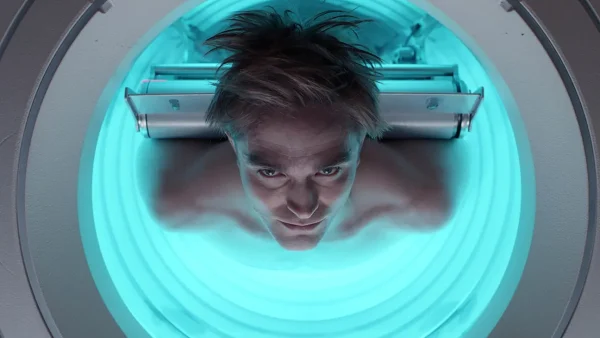Understanding POTS
No, not the plant.
According to Johns Hopkins Medicine, Postural orthostatic tachycardia syndrome, or POTS, is a common chronic illness that affects one in three million Americans. This illness is a form of dysautonomia, meaning that the autonomic nervous system in a patient’s body works incorrectly. When a person stands upright, the blood in their body pools into their legs and abdomen which decreases their blood pressure. The autonomic nervous system alerts the brain of this shift, and your blood vessels will narrow so as to continue the consistent flow to every part of your body. When a person with postural orthostatic tachycardia syndrome stands up, the autonomic nervous system does not respond as it is supposed to, and the patient’s blood vessels do not tighten enough to ensure blood flow to the brain. To “fix” this, the heart will begin to beat extremely fast which causes heart palpitations, lightheadedness, instability, nausea, shaking, and more. POTS symptoms, such as insomnia, heart palpitations, sweating, and brain fog, do not only occur when a person stands, they can occur at any moment.
Due to the inconsistent timing of symptoms, postural orthostatic tachycardia syndrome is commonly misdiagnosed as anxiety. According to The National Library of Medicine, “75% of patients report that their POTS symptoms were misdiagnosed by a physician prior to being diagnosed with POTS.” The diagnostic delay is improving as this illness becomes more known within the medical community.
Standard Of Care, an upcoming documentary series, has interviewed over one-hundred people. A great majority of them have been diagnosed with postural orthostatic tachycardia syndrome, POTS.
“I was diagnosed with POTS after 4 long months of constantly being misdiagnosed from various things as it was “just anxiety”, trying to get out of school, or my weight. Even after getting a diagnosis and treatment I have still had doctors tell me that my debilitating symptoms are all in my head and if I just go out with my friends more or loose weight everything will be cured.” -Samantha, VJC Counselor.
“I do competitive swim. pots has effected my ability to swim longer distances, attend practices and race. I also missed around 3 months of swim season this year due to it being too unsafe for me to be in the water and exercising.” -Daisy, a film student.
“I’ve played many sports growing up, but my most recent was track and field for the last 6 years. I wasn’t able to finish competing my sophomore year after I got sick, and most likely won’t be able to participate in athletics/exercise for years to come. My biggest struggle with POTS is that it’s an invisible, dynamic illness. I look completely healthy, but in reality, I’m barely able to stay alive. To people who don’t have POTS, I would tell them that there is so much you don’t see behind the scenes.” -Lindsey, 16, High School Student.
I was also diagnosed with POTS back in March of 2021. I had been showing immense symptoms since back in early 8th grade. Walking to class started to feel like hiking a mountain, and I had to start taking breaks in the hall to catch my breath. I cannot express how difficult it is to know something is wrong with your body and mind for years and years and be told, “it’s all in your head.” I was part of the 75% to be misdiagnosed, and I was misdiagnosed with anxiety. It took me roughly four years to find out what was going on with me, and since then, it has been such a relief to finally have an answer.
Misdiagnosing is a serious issue within the medical community. The medical scope needs to be broadened to encapsulate unrecognized illnesses, it is putting people’s lives at risk.






